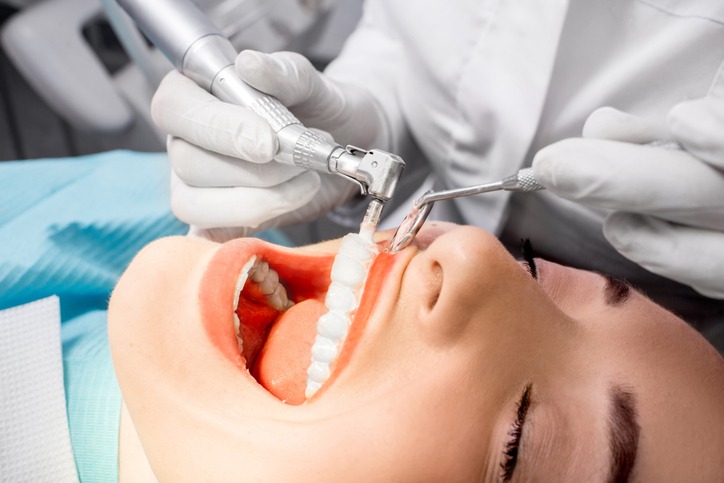Undergoing oral surgery can often bring a wave of questions and concerns, primarily surrounding the recovery process. Healing from oral surgery is a crucial stage that demands care, patience, and an understanding of what a typical recovery involves. Whether you’ve had a wisdom tooth removal, dental implant placement, or corrective jaw surgery, each step of your post-operative journey is critical to the success of the treatment and your overall health.
Initial Recovery Phase
Immediately following oral surgery, the body initiates its natural healing process. This initial phase often involves managing the common immediate postoperative symptoms that patients experience. What can you expect during this period?
-
Swelling around the surgery area
-
Mild to moderate pain as the anesthesia wears off
-
Bleeding, controlled by biting on gauze pads
Patient’s adherence to aftercare instructions, like applying ice packs and taking prescribed medication, can help mitigate these reactions. This phase typically lasts for the first 24 to 48 hours post-surgery.
Rest and Activity Limitation
Rest is not just recommended after oral surgery—it’s essential. Engaging in strenuous activities too soon can not only be painful but can also disrupt the healing process. It is advisable to avoid vigorous exercise and heavy lifting for at least a few days to a week, depending on the complexity of the surgery and the patient’s overall health.
Healing and Potential Complications
As the days progress, the body continues to repair itself. Most individuals notice a gradual decrease in swelling and discomfort. However, complications can occur and it’s important to be vigilant about any signs suggesting an issue, such as:
-
Persistent or severe pain
-
Swelling that worsens after a few days
-
Signs of infection, including fever and pus from the surgery site
Alerting your dental professional if these symptoms arise is critical in preventing further complications. Sticking to follow-up appointments allows for ongoing monitoring of your recovery progress.
Dietary Adjustments
Post-surgery, your mouth will likely be tender, making eating a challenge. It is important to start with a liquid and soft food diet to avoid disturbing the surgical site. Patients should focus on nutrient-dense foods to support recovery. Gradually, more solid foods can be introduced as comfort permits.
Follow-up Care
After surgery, patients will typically have follow-up appointments to ensure proper healing and to address any concerns. These visits allow your healthcare provider to monitor progress and confirm the surgery site is healing as expected.
In the case of dental surgeries, services like Blossom Dental Excellence provide the continued care needed through these follow-up appointments, playing a pivotal role in ensuring the full recovery of their patients.
The Role of Oral Hygiene
Maintaining good oral hygiene is essential throughout the healing process. However, patients must be gentle around the surgical site to avoid disrupting it. Utilizing a soft-bristled toothbrush and antiseptic mouthwash recommended by your dental professional can help keep the area clean and free from harmful bacteria.
Should an individual require expert care following their surgery, seeking assistance from a dentist in San Jose could be a favorable option to receive the necessary guidance on maintaining optimal oral hygiene during recovery.
Long-Term Healing
While most of the noticeable healing occurs within the first few weeks, internal healing can take several months. It is during this period that the full benefits of the surgery become apparent as the mouth adjusts to changes and the risk of complications diminishes. Continued adherence to care instructions and regular dental checkups support the long-term success of the surgery.
When to Seek Help
While most recoveries are uneventful, it’s essential to contact your healthcare provider if you experience abnormal symptoms or have concerns about the healing process. Keeping open communication with your dental professional ensures that any issues are addressed promptly, minimizing the risk of further complications.
Services specific to oral surgery San Jose adhere to a high level of patient care, which can be critical in situations where a patient might be unsure about their recovery and require professional advice or intervention.
Expected Milestones in Recovery
Understanding the typical timeline can help manage expectations and facilitate a smoother recovery. Here’s what many can anticipate:
-
24-48 hours: Control of bleeding, reduction in acute swelling.
-
1 week: Return to non-strenuous activities, initial follow-up.
-
2 weeks: Gradual introduction of regular foods, reduction of mild pain and discomfort.
-
1 month: Most external healing complete, ongoing internal healing.
-
6 months: Full benefits of the surgery should be realized, assuming no complications.
Patient Responsibility
Finally, it’s important to acknowledge the responsibility of the patient in their own recovery. Diligently following post-operative instructions, such as taking medications as prescribed, maintaining a proper diet, and attending all follow-up appointments, are all actions within the patient’s control that significantly impact the success of their recovery.
Final Thoughts
The journey to recovery from oral surgery is a multifaceted one that evolves from managing immediate post-operative symptoms to ensuring long-term healing and success of the procedure. Every step taken, from resting adequately to maintaining oral hygiene and attending follow-up visits, plays a part in the bigger picture of health. By understanding what to expect and actively participating in their recovery, patients can help ensure they navigate this process as smoothly and effectively as possible.


